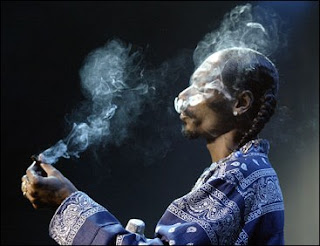Forever linked with West Coast rival 2pac, The Notorious B.I.G. is one of rap's most revered voices blah blah blah. Look, we all know the good and bad about Biggie: he's one of the great storytellers, his voice is inimitable, he helped pioneer 2/3rds of the current rap culture, he really liked Coogi. On the negative side of the scale, he had a depressingly limited discography, his lyricism isn't as refined as you have probably been led to believe, and he is at least partially responsible for Ma$e. Everyone has strengths and weaknesses.
 |
| Pictured: Weakness. |
While his booming voice is often juxtaposed with 2pac's manic delivery, Biggie's truer foil is probably not West Coast rap as much as it is Southern rap; he'd be more at home on a 2pac track (that happened!) than he would be spitting alongside groups like Outkast or Goodie Mob, and not just because of the time difference. It's reductionist to split hip-hop into geographic categories, of course. Even within one city, say Atlanta, the gap between Outkast and The Ying Yang Twins is as large as the gap between any two rap entities can be. Still, that doesn't mean that these categories are inherently meaningless; there's a lot to be said for Biggie's place in rap as an iteration of Brooklyn hip-hop specifically and as an embodiment of the values of East Coast hip-hop more generally. All that to say, I like Biggie and I don't think there's much to be accomplished by only talking about him in reference to 2pac (or vice versa) because they don't enhance understandings' of each other's work nearly as much as one would suspect given how often they're spoken of in that way. I propose that we do away with the discussion entirely until someone has something original and worthwhile to say about it. Lord knows it won't be me.
 |
| Although there's a surprisingly good chance that it will be D-Roc. |
"Lost chips on Lakers, gassed off Shaq"
Explanation: Biggie bet that the Lakers would win, but, as they didn't, he lost some moolah. Thus, Shaq, who was chiefly responsible for the Lakers' success or failure at the time when Biggie released this song, has him "gassed," or exhausted by his failure to make him money.
Awkwardness of Reference: This is probably the least awkward reference I've reviewed so far. Biggie seamlessly weaves his gambling failures with descriptions of expensive meals and leisurely recreation. Although I have no idea how one plays tennis while on horseback. 5 of 5.
Cleverness of Reference: Aside from the somewhat obfuscate use of slang, there's nothing particularly clever about this line. Even the rhymes with which it is connected are especially inspired. 2 of 5.
Appropriateness of Reference: During the 1996-1997 season, Shaq's first with the Lakers and the only NBA season with Shaq in gold and purple that Biggie would have witnessed, the Lakers won 56 games and made it to the second round of the NBA playoffs. However, Shaq missed 30 games, so there were plenty of possibilities for Biggie to lose money because of him. Since this was Shaq's only non-Kobe Lakers season, it's quite appropriate for Biggie to put the blame for a Lakers' loss on O'Neal. 5 of 5.
Shaqness of Reference: As mentioned, at the time Biggie released this song, no other player could have really been as much at fault for a Lakers loss as Shaq. Also, Nick Van Exel is hard to fit into any rhyme scheme. 5 of 5.
 |
| I have no idea what's going on in this picture. |
FINAL SHAQ SCORE: 17 OUT OF 20 (New high score!)


































